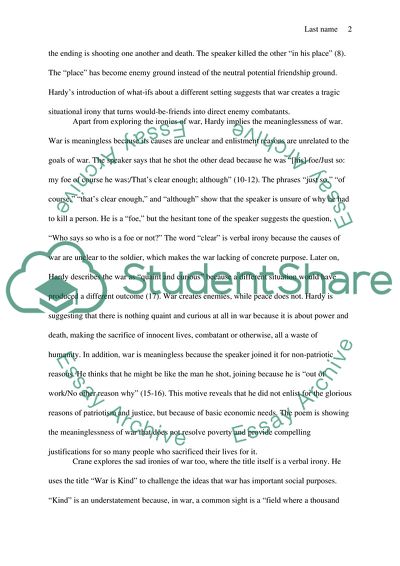Cite this document
(“The Man He Killed Essay Example | Topics and Well Written Essays - 1250 words”, n.d.)
Retrieved from https://studentshare.org/literature/1628707-the-man-he-killed
Retrieved from https://studentshare.org/literature/1628707-the-man-he-killed
(The Man He Killed Essay Example | Topics and Well Written Essays - 1250 Words)
https://studentshare.org/literature/1628707-the-man-he-killed.
https://studentshare.org/literature/1628707-the-man-he-killed.
“The Man He Killed Essay Example | Topics and Well Written Essays - 1250 Words”, n.d. https://studentshare.org/literature/1628707-the-man-he-killed.


